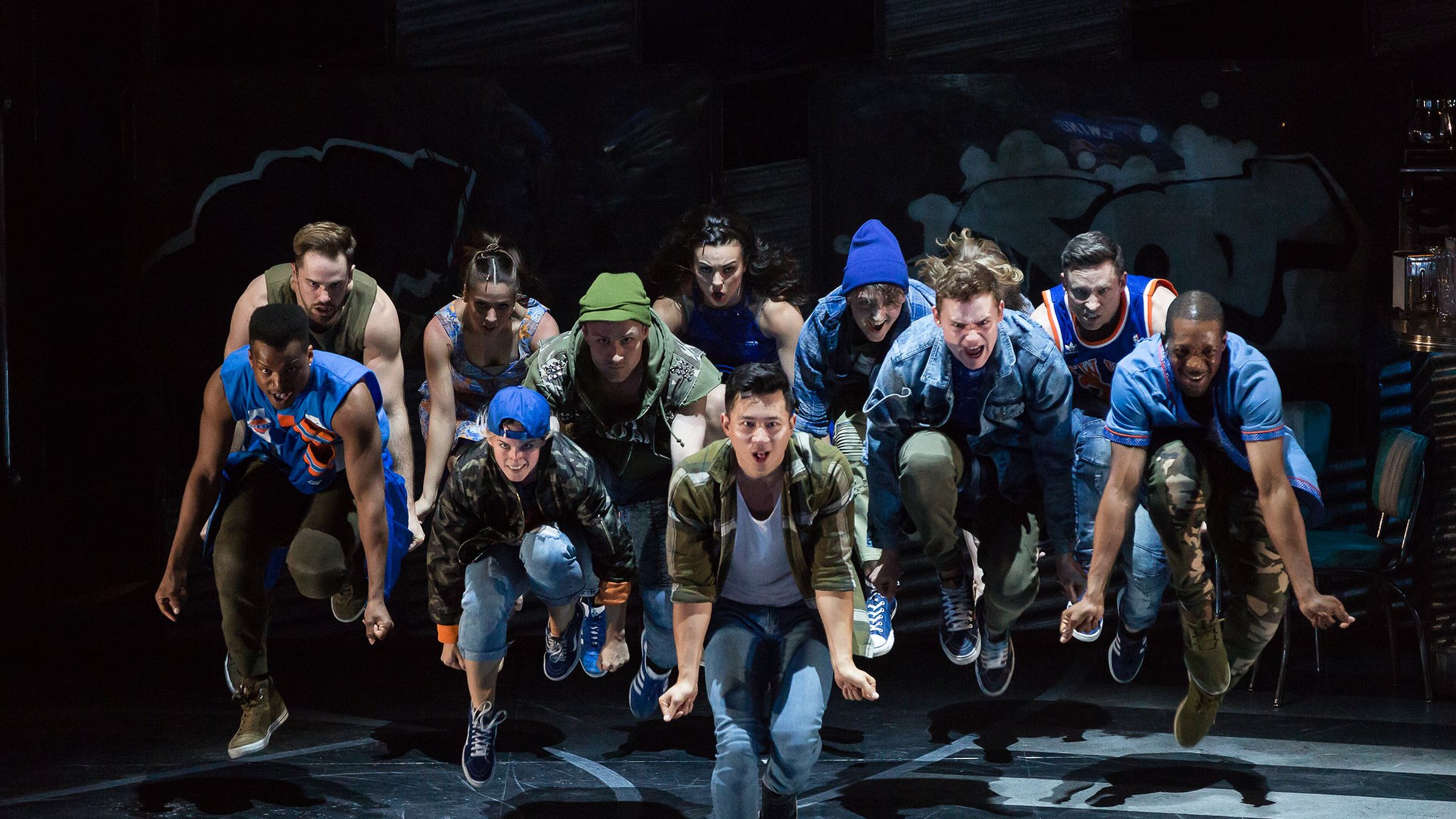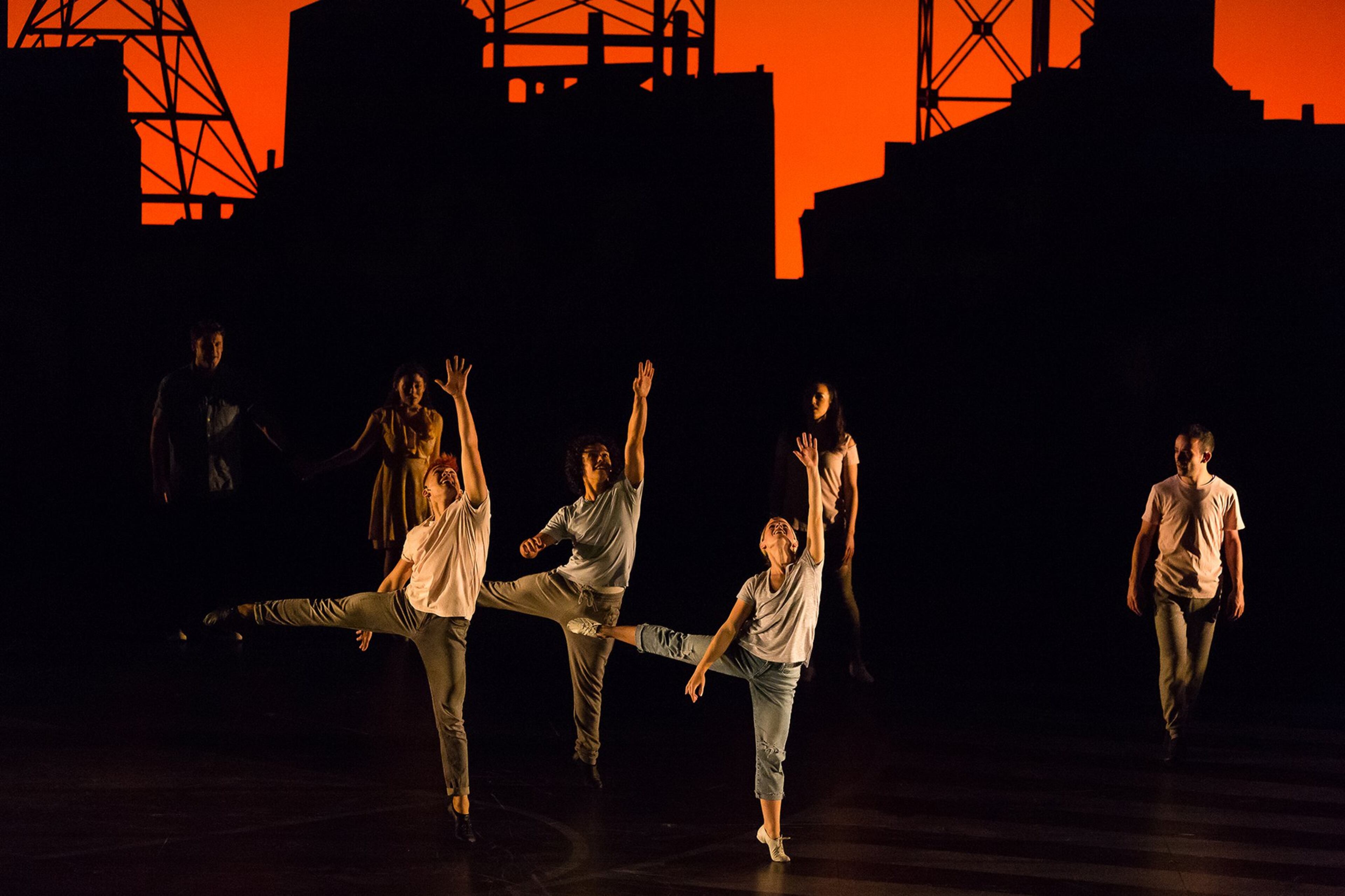Atlanta Opera’s ‘West Side Story’ still relevant 60 years later

Musicals come and go, but the story of the Sharks vs. the Jets, of Tony and Maria who fall in love against the odds, can still seem as moving today as when it premiered more than 60 years ago. When the Atlanta Opera opens its 2018-19 season with a new production of the classic musical at the Cobb Energy Performing Arts Centre on Nov. 3, the company hopes audiences will rediscover the timeless brilliance of "West Side Story," with music by Leonard Bernstein, lyrics by Stephen Sondheim, book by Arthur Laurents and choreography by Jerome Robbins.
“We chose Bernstein’s arguably greatest masterpiece to open our main stage season, not only to commemorate this musical giant’s legacy, but also as a deliberate reflection on the times we live in,” says Atlanta Opera General and Artistic Director Tomer Zvulun. “The issues tackled in a piece that premiered over half a century ago — immigration, violence, social inequality, xenophobia — are still haunting us today as much as they did decades ago.”
The production, which marks the 100th anniversary year of Bernstein’s birth, started its life at Houston Grand Opera in March 2018, then moved to Glimmerglass in the summer, before having a production at Kansas City Lyric Opera in September. The Atlanta production will be its fourth incarnation. The production is directed by renowned opera director Francesca Zambello, artistic and general director of the Glimmerglass Festival.
“The idea was to take this classic story using the original book, the original music and the original choreography, and try to figure out how we could still make it feel fresh and important to modern day audiences,” says Associate Director Eric Sean Fogel.
Staging the classic musical at regional opera companies has several advantages, says Fogel. In addition to larger budgets for scenery, “when opera houses do musicals, especially the Golden Age musicals, you’re hearing it with a full orchestra,” he says. “A lot of Broadway shows and theatrical productions now have to do reductions.”
Even though the score has elements of classical music and the story itself could be seen as operatic, “West Side Story” is still a very different show than “La Traviata” or “Barber of Seville.”
“In the casting process, we’ve been very lucky to find either dancers who have classical vocal training or opera singers who used to be dancers before they went on to get their degrees in voice. We pretty much spent the year scouring the country finding these opera singers who dance or dancers who can sing,” says Fogel.
Whether in a show like “West Side Story” or a forward-thinking production of “La Traviata,” opera singers nowadays are expected to do far more than just stand on stage and sing as they once did.
“The ‘park and bark’ generation is ending,” says Soprano Vanessa Becerra, who plays Maria.
Although Tony and Maria don’t do dance as much as other characters in “West Side Story,” there is a crucial scene when they first meet and dance the cha-cha. Tenor Andrew Bidlack, who performs as Tony, says performing in scenes like that is just part of the new demands of the changing world of opera.

“The days of opera singers standing still and singing are in the past,” he says. “I may not be called on to do the cha-cha in other operas, but you’re certainly moving around a whole lot. I’ve done shows where I’m lying on the floor or hanging off the set. It’s really exciting now, what’s being done with opera. It requires a certain amount of athletic ability because you have to do this stuff and keep your breath under you.”
Adjusting to the music itself can be a switch for an opera singer more accustomed to singing Verdi and Mozart. “There’s a stylistic element that’s very different,” says Bidlack. “When I approach this, I don’t think of it as singing like a full-on opera singer. You can play with some of the rhythms in a jazzy way. That’s part of the style in some of the numbers that you wouldn’t get away with if you’re singing something else. It’s considered crossover. You use your technique, but you do the style, which Broadway singers do intuitively.”
And surprisingly, it isn’t always the dancing or singing that’s the most challenging: it’s the talking. Opera singers are accustomed to performing a work that’s entirely sung through, so simply learning to speak pages of dialogue can be a challenge. “It can be hard,” Becerra says. “All of a sudden I’m on stage and I don’t know how to talk. That part of the preparation has been unique.”
In the end, cast and crew agree that meeting the challenges are worth the effort to bring a top-notch production of the musical to the stage at such a crucial time.
“All of the topics in ‘West Side Story’ are even more relevant 60 years later,” says Becerra. “Racism is still a thing, xenophobia is still a thing, sexism is still a thing … I don’t think [the show’s creators] expected how long-lasting the impact of the story would be and how relevant it would be many decades later. I don’t know if that’s encouraging or discouraging, but we’re here to tell the story. And I’m proud to be a part of that.”
EVENT PREVIEW
'West Side Story.' Presented by Atlanta Opera. 8 p.m. Nov. 3-11. $43-$139. Cobb Energy Performing Arts Centre, 2800 Cobb Galleria Parkway, Atlanta. 404-881-8885, www.atlantaopera.org.

